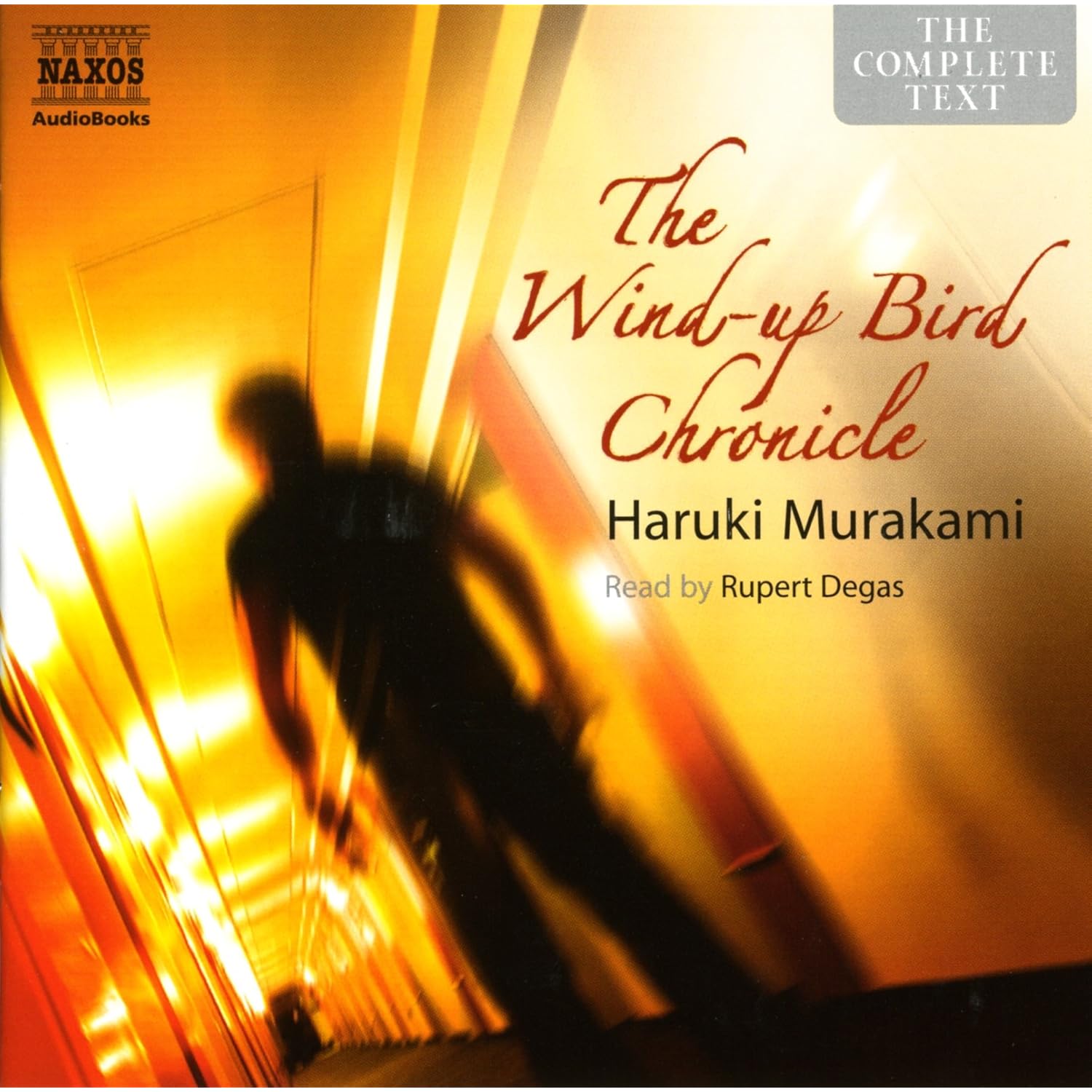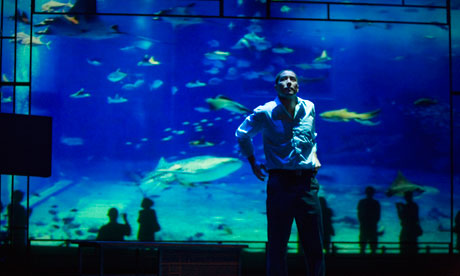 “Our lives are not our own. We are bound to others, past and present, and by each crime and every kindness, we birth our future.”
“Our lives are not our own. We are bound to others, past and present, and by each crime and every kindness, we birth our future.” ― David Mitchell, Cloud Atlas
“Spent the fortnight gone in the music room reworking my year's fragments into a 'sextet for overlapping soloists': piano, clarinet, 'cello, flute, oboe, and violin, each in its own language of key, scale, and color. In the first set, each solo is interrupted by its successor; in the second, each interruption is recontinued, in order. Revolutionary or gimmicky? Shan't know until it's finished, and by then it'll be too late.”
― David Mitchell, Cloud Atlas
If you're looking for a complex read... read this.
 This novel is split up in to six narratives about novella length. The novellas are then neatly sat within the next narrative. It's kind of like you took six books, you take the first book and slot a second book in to the first, you then take a third book and slot it in to the centre of the second, you then take a fourth etc etc (remember when you used to do that when you were supposed to be reading something and you hid a comic book inside and read that instead? Yeah, it's just like that) and so because that is the make-up of the narrative each story is interrupted by the next.
This novel is split up in to six narratives about novella length. The novellas are then neatly sat within the next narrative. It's kind of like you took six books, you take the first book and slot a second book in to the first, you then take a third book and slot it in to the centre of the second, you then take a fourth etc etc (remember when you used to do that when you were supposed to be reading something and you hid a comic book inside and read that instead? Yeah, it's just like that) and so because that is the make-up of the narrative each story is interrupted by the next. Yes. Even my description is complex!
So, the first half of the first novella takes place in the 18th Century. We are introduced to a hypochondriac lawyer, Adam Ewing, who is befriended by a doctor who collects and sells teeth.
The second novella sees us introduced to a young aspiring composer named Frobisher. Frobisher sends a series of letters to his lover in Cambridge, both mentioning the diary he is reading, but also how he is working for one of the greatest living composers in Europe.
In the future, Luisa Ray comes across those letters and hunts down a rare piece of music by Frobisher and they inspire her to make sacrifices to become an amazing journalist. We are interrupted by Timothy Cavendish and eccentric publisher, and realise that Luisa Ray's narrative is a book he's been sent for perusal.
Cavendish is victim to a series of very, very unfortunate events and his life is being watched as a movie by a clone, in the distant future called Sonmi-451 who is the unknowing leader of a revolution.
The next narrative is from a post-apocalyptic future, Zachary a goat-herder and his tribe worship Sonmi as a goddess. A woman from the Prescients has come to study the way his tribe live.
What do all these characters have in common? The key character in all of the narratives have a shooting-star shaped birthmark somewhere on their body.
The Audiobook
I bought this book from Audible (as usual) and I was very happy to see that they had recruited six different narrators for this awesome job. I think it was necessary so that the book felt as broken up as it should have. Sonmi-451's voice was simply brilliant. She had that robotic quality that we would imagine! Also, Timothy Cavendish's narrator sounded... I kid you not... just like Jim Broadbent (who played Cavendish in the movie); It was genius. The production was excellent!
The Story
Although the book is complex, it is so very elegant. The book won't be for everybody, I admit, but it is so beautifully crafted I really did feel in awe. Mitchell knew exactly what he wanted to achieve with this book. He did not become lost. Although all the stories are connected and lay over and interrupt each other, he is master of all the characters and does not allow them to run away with him.
Timothy Cavendish's story is a hilarious one, which I enjoyed so very much. Nearly all the novels are super heavy and so Mitchell offered comic relief to allow the reader to giggle. It was one of my favourites, but my real favourite was Sonmi-451's narrative. It was beautiful. Slightly disconnected but also feeling.
The most amazing part, I found, about the whole book was how Mitchell managed to forge the English language to suit each time. Of course, the 18th Century Ewing would write in a way that we would expect from the 18th Century. Timothy Cavendish is in present day London and so his language reflects this. Luisa Ray's story takes place in the 70s and so the colloquialism is reflective. But then Mitchell does something extraordinary, he fashions whole new dialects for the narrators in the future. It is incredible. Sonmi-451's language is brilliant. Instead of using words such as 'TV/Television' she calls them 'Sony's'... because it is a super commercialised world she lives in, things are known by their brand names rather than their actual names (kinda like in the UK where a vacuum cleaner is called a 'Hoover'). When we fast forward even further in the future to Zachary's narrative, it takes a little time to get used to the dialect, well, it's just amazing. I'm sure you can tell that I was just so, so impressed.
The only issue I have with this book is that it was difficult to stay interested! For instance, I loathed Adam Ewing, I found his narrative painfully boring! But because it is pretty impossible to even skip a few minutes/pages of this book for fear of missing something crucial I had to painfully listen through it.
I tried not to extract meaning from the books as much as others have. There is much discussion of the idea that the stories are just repetitions of each other from different time periods including the same soul, but y'know what... I didn't get that. I felt that they were connected because their lives effected both the future and the past, but I left it at that. When I re-read it I will try and decipher it all!
 Is the book a good one? Well, it's an amazingly crafted book. The language is amazing, the writing sensitive and in command. The characters are varied and brilliant. But as a story does it work well? I'm not sure... it would all depend on the person I believe. I've seen this book get rated 5/5 but also receive a mere 1/5. This book has the potential to frustrate some, whilst mesmerising others.
Is the book a good one? Well, it's an amazingly crafted book. The language is amazing, the writing sensitive and in command. The characters are varied and brilliant. But as a story does it work well? I'm not sure... it would all depend on the person I believe. I've seen this book get rated 5/5 but also receive a mere 1/5. This book has the potential to frustrate some, whilst mesmerising others.If you have a short attention span, or no real love for language or literary craftsmanship I would avoid the book. It'll make you angry! If though, you can be patient, enjoy beautiful writing, and can admire the time, love and dedication an author has put in to his work then I promise this book will definitely enlighten and awe you.
The movie was released in 2012. I will be offering up a review of it too, BUT I must watch it again before I can!


















